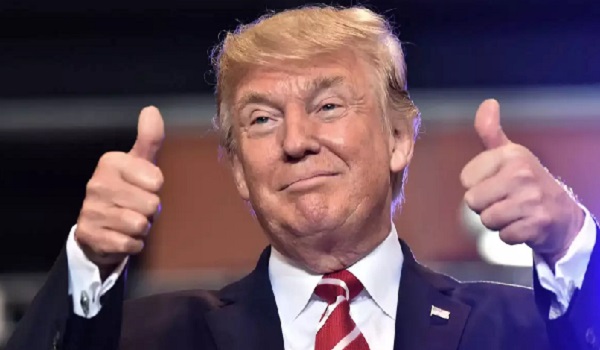Feds consider loads of U.S. goods, including steel products and Florida orange juice for tariffs
Canada is looking at levying retaliatory tariffs on a wide range of American-made goods including orange juice, ceramics such as toilets and sinks, and some steel products as part of a targeted response should Donald Trump proceed with a threat to impose a 25-per-cent tax on all products from Canada.
A senior government source said the list of retaliatory targets is still being developed and is not finalized. The Globe and Mail is not naming the source because they were not authorized to discuss the matter publicly. As The Globe reported earlier this week, Ottawa is considering an early release of the full proposed target list to alert American businesses to the extra costs they would bear should the United States start a trade war with Canada.
Mr. Trump is set to become U.S. president on Jan. 20 and has vowed to impose steep tariffs on Canadian goods if the country doesn’t take sufficient action on illegal migration and drug smuggling into American territory from Canada.
Ottawa has announced $1.3-billion in new border security spending over six years but Mr. Trump has so far not signalled he’s satisfied. On Tuesday he said he still plans to impose substantial tariffs on Canada – while suggesting he could compel the country with “economic force” to join the United States.
Other possible targets for retaliatory tariffs include American glassware, flowers and certain plastics, the source said.
Meanwhile, Canada’s premiers are set to discuss their own proposed retaliatory tariffs at a meeting with Prime Minister Justin Trudeau next week, Ontario’s Premier said on Wednesday. Provincial governments have been trying to fill the leadership vacuum left by Mr. Trudeau’s plan to step down – with less than two weeks to go before Mr. Trump’s second term as U.S. president.
As with the retaliatory tariffs Canada levied on the United States during the first Trump administration, Ottawa is trying to carefully select American goods in a manner that minimizes, where possible, the impact on Canadian consumers but maximizes political pain for U.S. decision-makers. In 2018, for instance, Ottawa chose products that were manufactured in districts home to leaders in the U.S. Congress.
Orange juice, for instance, is largely produced in Florida, Mr. Trump’s adopted home state, as well as home to numerous Republican congressional members.
Ontario Premier Doug Ford, who currently holds the rotating chair of the Council of the Federation of Canada’s premiers, said tariffs will be up for discussion when they will meet Jan. 15 in Ottawa with Mr. Trudeau and federal Finance Minister and Intergovernmental Affairs Minister Dominic LeBlanc.
Speaking after a virtual meeting on Wednesday with his 12 provincial and territorial counterparts, Mr. Ford said he was aware the federal government had drawn up a short list of possible tariffs, which he hoped to see soon. But he said it would not be strategic to disclose any of the options in advance.
The Premier said he and the other premiers would push Ottawa to do more on border security, ratchet up military spending to 2 per cent of gross domestic product, and settle on a “united” message to send to Americans.
But he also told reporters he has little doubt that Mr. Trump intends to impose his promised tariffs.
“Let’s just make sure that we do everything in our power, I mentioned to the premiers, to avoid these tariffs,” Mr. Ford said. “I personally feel they’re coming. They’re coming hard. The president has really ramped up his talking points over the last day or two. And we’re concerned.”
Still, the Premier said had spoken to people who know the president-elect and insisted that his message that Ontario and Canada are important economic partners for the U.S. had reached Mr. Trump “loud and clear.”
Mr. Ford also said the premiers have finalized plans for a group to head to Washington on Feb. 12 to speak to senators and members of the House of Representatives and try to influence Mr. Trump. But the premiers do not intend to meet with Mr. Trump himself, Mr. Ford said, unless he asks.
Alberta Premier Danielle Smith, who is attending Mr. Trump’s Jan. 20 inauguration, said in a statement that the premiers recognize U.S. tariffs would “impact each province differently.” She said they plan to keep meeting with U.S. officials to press Canada’s case. However, Alberta’s plan to strengthen its relationship with the U.S. is to double oil production and increase crude oil exports, she said, so the U.S. can send more light oil to the rest of the world.
Earlier on Wednesday, Mr. Ford held an event at the Darlington nuclear plant east of Toronto where he announced a plan to expand cross-border energy co-operation as part of a concept he calls “Fortress Am-Can.” He called Mr. Trump’s recent remarks that he would make Canada the 51st state “ridiculous” and a waste of time.
While being driven back to Toronto, Mr. Ford’s SUV was hit by another vehicle on Highway 401. Neither the Premier not anyone in his entourage was injured. Grace Lee, a spokeswoman for the Premier, said the driver of the other car suffered non-life-threatening injuries. OPP Commissioner Thomas Carrique told The Globe and Mail the driver was charged with dangerous driving.
Ontario’s Premier has increasingly become a spokesperson for Canada in U.S. media, with Ottawa becoming consumed by the race to replace Mr. Trudeau. On Tuesday night, Mr. Ford made his latest appearance on U.S. cable television, this time in a prime-time slot on Fox News. The Premier told viewers Canada was “not for sale.”
This article was first reported by The Globe and Mail













